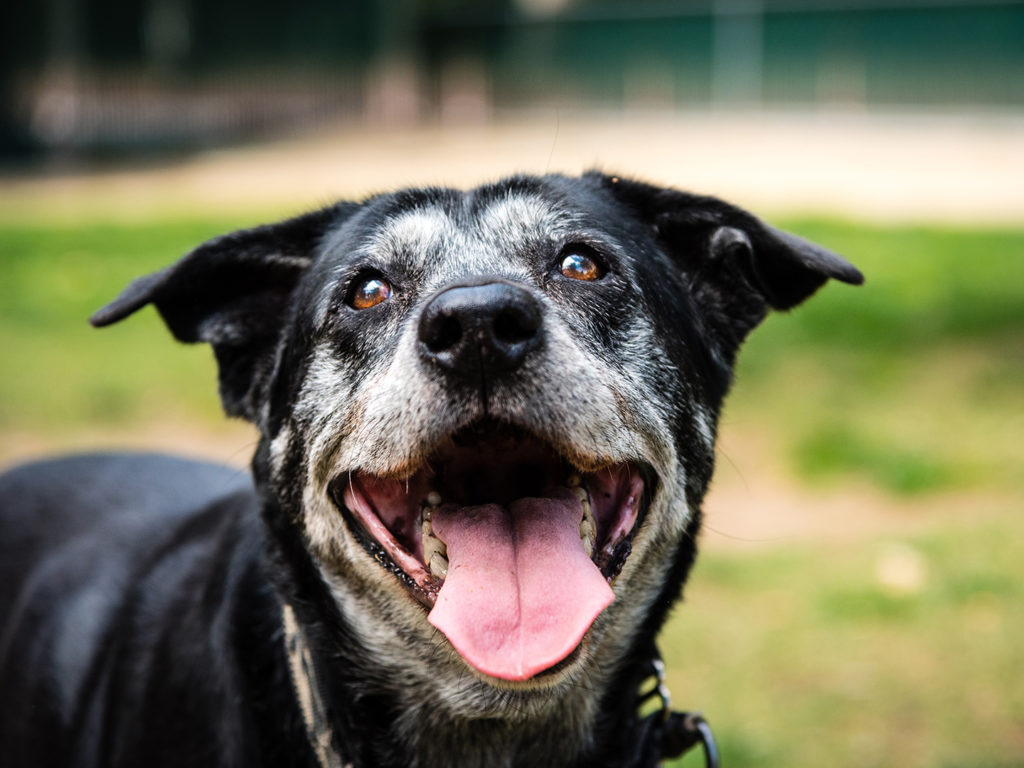How to Care for a Deaf Dog

Whether they stand up straight or flop over, your dog’s ears help give your canine friend an amazing sense of hearing that plays a large role in hunting, playing, and everyday life.
What are the implications, then, for a dog that is born deaf or loses its hearing?
Dr. Lori Teller, an associate professor at the Texas A&M College of Veterinary Medicine & Biomedical Sciences, says that dogs may experience hearing loss for a multitude of reasons.
Some dogs are born deaf or are predisposed to hearing loss because of their breed or a congenital issue.
“This can be the result of an inherited disease or a virus or toxin that the dog’s mother was exposed to while pregnant,” Teller said.
Typically, dogs with a white or merle coat are more prone to congenital deafness. Breeds such as dalmatians, bull terriers, and Australian cattle dogs are also more prone to hearing loss conditions.
Because of that, “dogs that are deaf because of an inherited condition should not be used for breeding,” Teller said.
In addition, while hearing loss is most common in senior dogs, it can occur for a multitude of reasons, ranging from chronic otitis (inflammation), infection, trauma, excessive ear wax, cancer, or persistent exposure to very loud noises.
“If your dog’s hearing loss seems to have come about suddenly,” Teller said, “then a veterinary exam is definitely warranted to check for evidence of trauma, infection, neoplasia (change to a tumor), or other potential problems.”
For dogs experiencing deafness caused by underlying disease, they may need to see their veterinarian more frequently than normally recommended.
If a dog is in the early stages of hearing loss, owners may notice that the pet is harder to wake up or tends to bark more frequently than usual.
“Your dog also may be experiencing some hearing issues if it is no longer responsive to sounds it previously responded to, such as a doorbell, vacuum cleaner, or can opener,” Teller said.
While hearing loss does drastically change a dog and owner’s life, it does not mean the ending of a wonderful relationship.
“Deaf dogs can lead normal lives with extra work and dedication by the owner,” Teller said.
Through obedience training, for example, dogs can learn hand signals in replacement of the usual verbal commands.
In addition, because deaf dogs or those experiencing hearing loss may startle more frequently than those that can hear, owners should find ways to gently awaken or alert their dog; finding a safe place for the dog to sleep and eat away from potential startles can help avoid injury.
Outdoors, owners also should take extra precautions to keep the dog safe from moving vehicles and unknown animals, as they will be less aware of their surroundings than other dogs.
While it may not be an easy road, the loss of hearing does not necessarily limit a dog’s ability to live a full and happy life if its owners are dedicated and patient.
Pet Talk is a service of the College of Veterinary Medicine & Biomedical Sciences, Texas A&M University. Stories can be viewed on the web at vetmed.tamu.edu/news/pet-talk. Suggestions for future topics may be directed to editor@cvm.tamu.edu.


